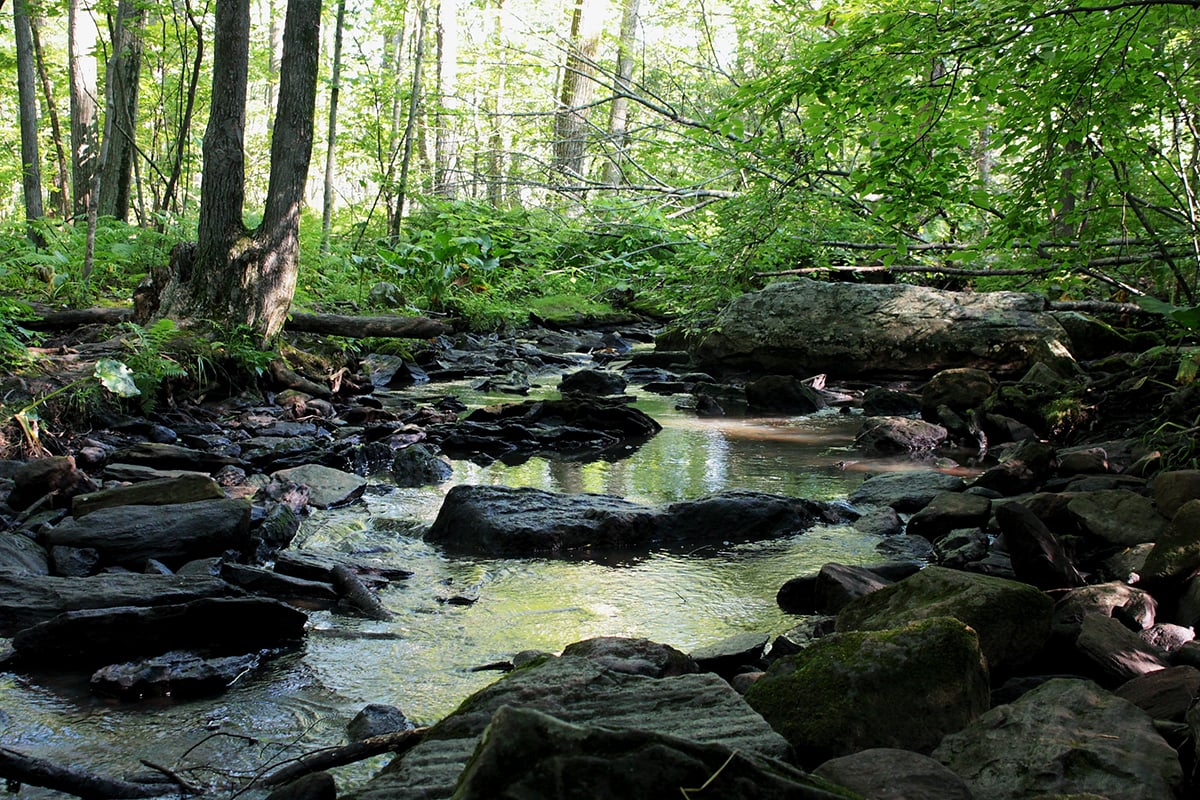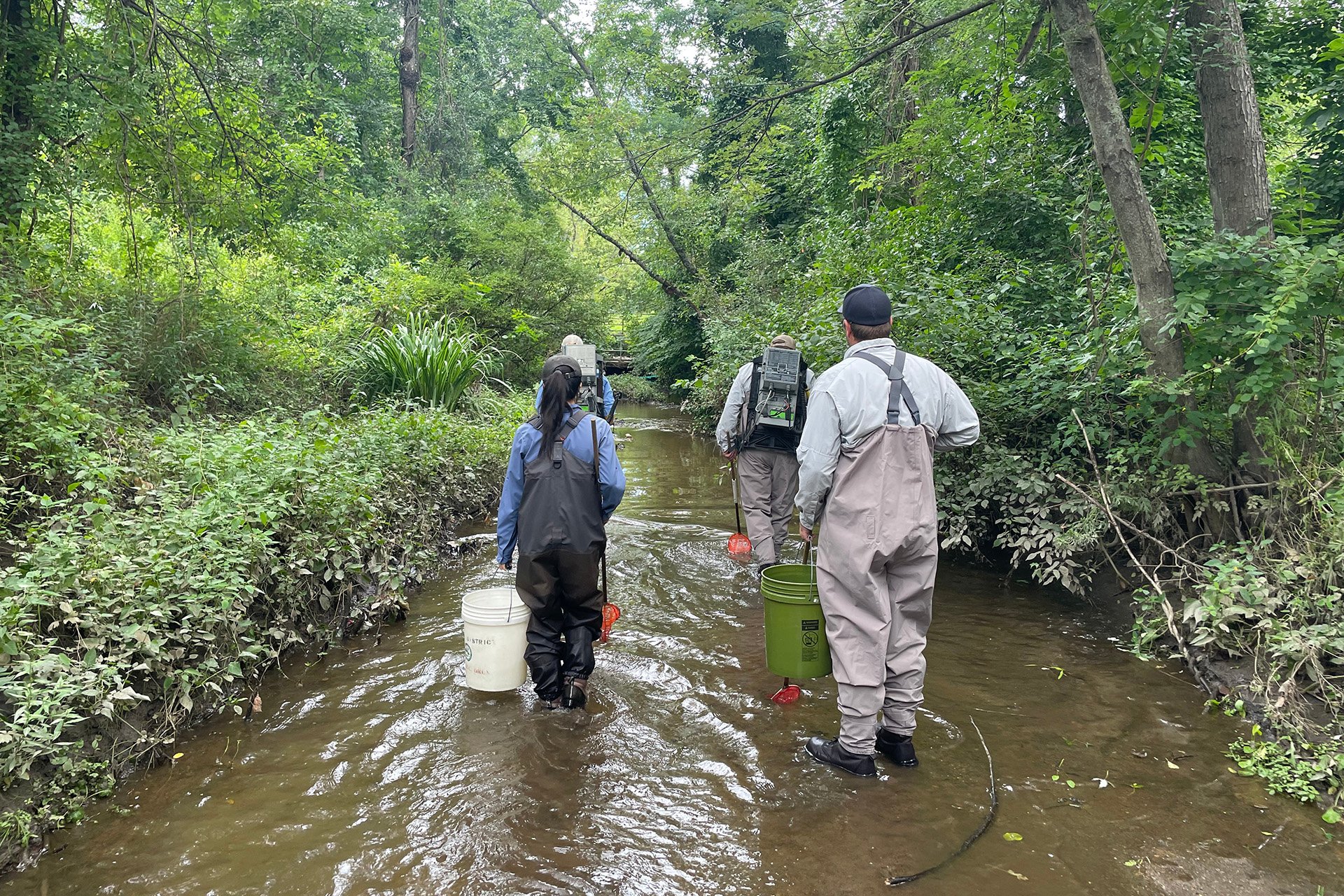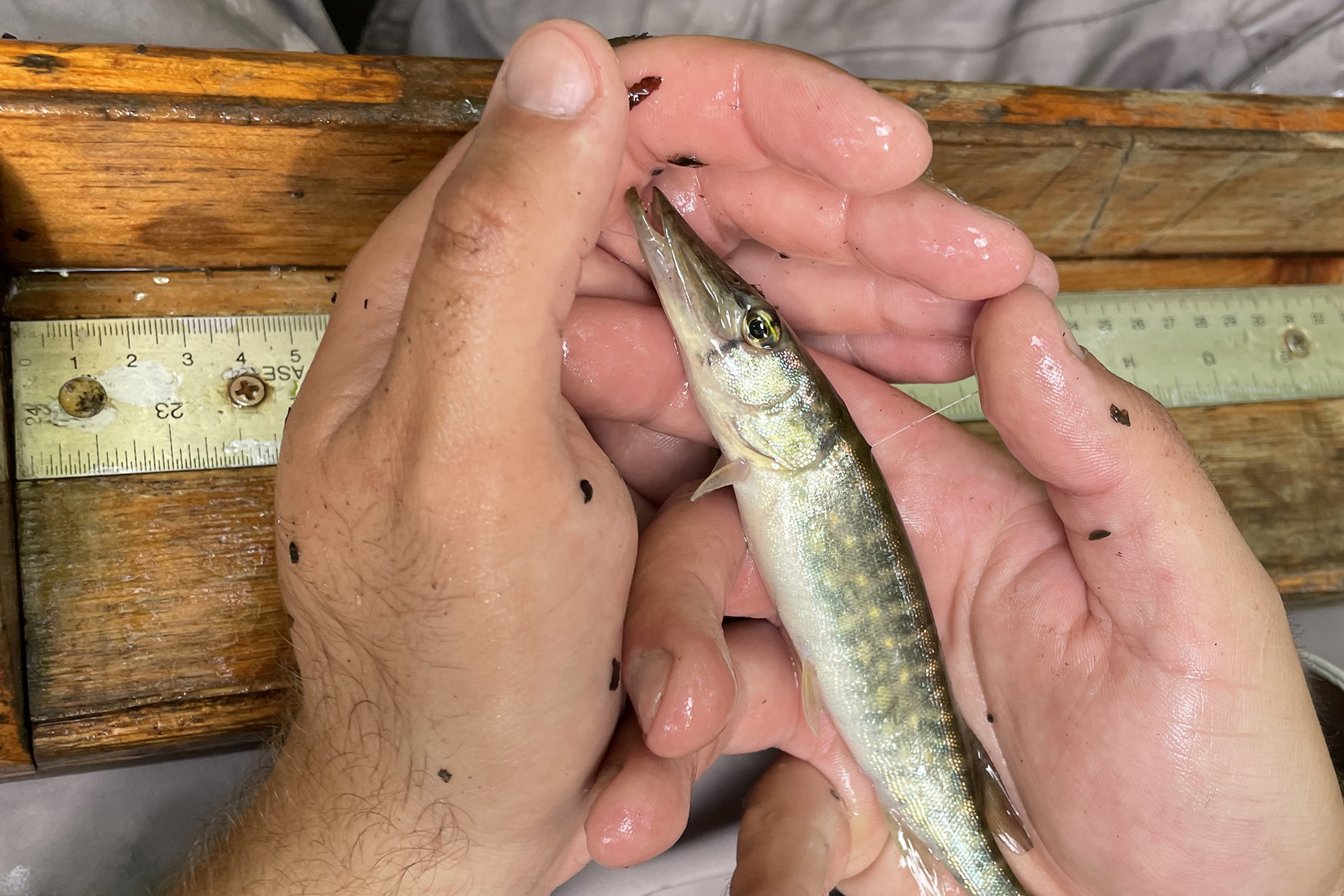Stream Restoration to Combat Climate Change
Situated at the headwaters of the Blackstone River watershed, the Broad Meadow Brook wetland is fed primarily by the city of Worcester’s urban storm drain system. Abutting the sanctuary are residential neighborhoods, including Environmental Justice communities, that experience localized flooding.
Typically, wetlands can prevent flooding by storing an excess of water, but the 40-acre wetland in the sanctuary has been severely degraded by the alteration of natural water flows, poor water quality, and invasive plants. This altered aquatic environment also harms the fish and wildlife that rely on clean water.
The restoration of this land is essential to develop a self-sustaining, dynamic wetland ecosystem that is accessible for the enjoyment and benefit of neighbors, residents, and visitors.
Project Goals
Wetlands are becoming increasingly important in combatting the future effects of climate change. With rainfall levels expected to rise, we must give our wetlands the space they need to provide important ecosystem functions, such as preventing flooding in adjacent areas.
The Broad Meadow Brook restoration project intends to improve water quality, flood storage capacity, and native wildlife habitat value while reducing flood risk in adjacent residential neighborhoods and enhancing recreational access to the area.
Mass Audubon’s Resilient Landscapes goal in the Action Agenda—our ambitious five-year plan to protect natural habitats within Massachusetts and increase access to nature—aligns with the goals of the Broad Meadow Brook restoration. By protecting these lands, we can maximize the ecological benefits for both local communities and wildlife.
Project Partners
To help reach these goals, Mass Audubon is working with several partners, including the City of Worcester. The Blackstone River Watershed has three stations throughout the brook to monitor water quality, and stream gauges installed and monitored by the Massachusetts Division of Ecological Restoration track the dramatic rise and fall of floodwaters during storm events.
Project team members are also working with Worcester's academic community, site neighbors, and sanctuary visitors to strengthen project concepts and build a foundation for success. By engaging the local community, we can share the importance of restoring wetlands and waterways like Broad Meadow Brook.
How You Can Help
All of our water is connected. Falling rain and snow goes into the ground or into storm sewers, then directly into the nearest stream. You can make a difference and improve water health by taking simple actions at home.
- Minimize chemicals on your lawn to prevent water contamination and improve habitat quality for the creatures that call the wetlands.
- Plant trees to prepare for increased rainfall in your area as trees absorb large amounts of water on your property.
- Make sure that recycling bin lids are closed and picking up litter in your community. Litter and recyclables often find their way to a stream or lake and can contaminate water health within your community.
- Help with stream cleanups to improve stream health and habitat quality.
- Become a Mass Audubon member to support the work we do in protecting the nature of Massachusetts.
Latest Projects Updates
For the latest updates, check out our news page or sign up for email.
Stay Connected with Broad Meadow Brook
Don't miss a beat on all the ways you can get outdoors, celebrate nature, and get involved.





